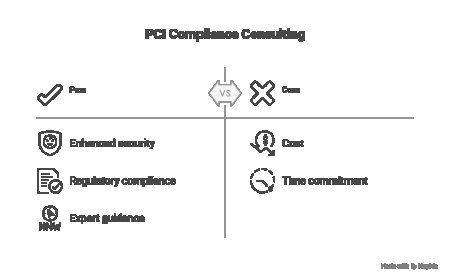How Mebendazole Works to Eliminate Parasitic Infections
Mebendazole is a synthetic broad-spectrum anthelmintic drug belonging to the benzimidazole class. It is primarily used to treat infections.

Parasitic worm infections, such as pinworms, roundworms, hookworms, and whipworms, are a global health issue, particularly in regions with poor sanitation. One of the most effective and widely used medications to combat these infections is Mebendazole Over The Counter, an anthelmintic (anti-worm) drug that has been in use for decades. This article delves into how Mebendazole works to eliminate parasitic infections, covering its mechanism of action, spectrum of activity, dosage, and role in global health.
What Is Mebendazole?
Mebendazole is a synthetic broad-spectrum anthelmintic drug belonging to the benzimidazole class. It is primarily used to treat infections caused by gastrointestinal nematodes (worms). First developed in the 1970s, it has proven to be a safe, reliable, and affordable treatment for parasitic infections in both children and adults.
Common Infections Treated by Mebendazole
Mebendazole is effective against a range of helminths, including:
-
Enterobius vermicularis (pinworm)
-
Ascaris lumbricoides (roundworm)
-
Trichuris trichiura (whipworm)
-
Ancylostoma duodenale and Necator americanus (hookworms)
-
Occasionally effective against Taenia spp. (tapeworms), although not the first-line treatment
Mechanism of Action: How Mebendazole Kills Worms
The effectiveness of Mebendazole lies in its ability to interfere with the parasites ability to absorb nutrients, specifically glucose. Here's how it works:
1. Inhibition of Microtubule Formation
Mebendazole binds to ?-tubulin, a protein crucial for forming microtubules in the cells of the parasitic worm. Microtubules are essential for many cellular processes, including:
-
Cell division
-
Nutrient uptake
-
Structural integrity
When microtubule formation is disrupted, the parasite cannot carry out normal functions.
2. Impaired Glucose Uptake
With microtubule disruption, the worm loses its ability to absorb glucoseits primary source of energy. This leads to:
-
Depletion of energy stores (glycogen)
-
Loss of motility
-
Inability to reproduce
-
Death of the parasite
Because Mebendazole acts selectively on parasitic ?-tubulin (which differs structurally from human ?-tubulin), it minimizes harm to human cells.
Absorption and Activity in the Body
Mebendazole is only minimally absorbed into the bloodstream after oral administration, which is a beneficial feature for treating intestinal infections. The drug primarily acts locally in the gut, where the parasites reside.
-
Absorption: ~510% (increased with fatty meals)
-
Peak action: Within 24 hours after ingestion
-
Excretion: Mostly through feces
Due to this localized activity, side effects are rare and generally mild.
Dosage and Treatment Guidelines
Dosage varies depending on the type of worm infection:
-
Pinworm (Enterobiasis):
-
Adults and children ?2 years: 100 mg as a single dose.
-
Repeat after 2 weeks to prevent reinfection.
-
-
Roundworm, Whipworm, Hookworm:
-
100 mg twice daily for 3 days.
-
-
Mixed infections or severe infestations may require longer treatment.
Note: Mebendazole is not typically recommended for children under 1 year unless prescribed by a healthcare provider.
Effectiveness and Cure Rates
Mebendazole is highly effective against several intestinal worms:
-
Pinworms: >90% cure rate
-
Roundworms: 80100% efficacy
-
Whipworms: 6080% efficacy
-
Hookworms: 6595% efficacy
Effectiveness depends on proper dosing, patient adherence, and reinfection control measures (like hygiene and sanitation).
Side Effects and Safety Profile
Most people tolerate Mebendazole very well. Side effects, if they occur, are usually mild and include:
-
Abdominal pain or cramps
-
Nausea or vomiting
-
Diarrhea
-
Headache
Serious adverse reactions are rare but may include allergic reactions or bone marrow suppression in prolonged high doses (e.g., for hydatid disease, though not a common use for Mebendazole).
Pregnancy & Breastfeeding:
Mebendazole is generally avoided in the first trimester of pregnancy. Its use later in pregnancy and during breastfeeding should be guided by a healthcare professional.
Drug Interactions
Mebendazole has few known drug interactions, but some medications may reduce its effectiveness or increase toxicity risk:
-
Cimetidine: May increase plasma levels of Mebendazole.
-
Carbamazepine or Phenytoin: May reduce its efficacy by increasing metabolism.
-
Metronidazole: Rare reports of severe skin reactions when used concurrently.
Mebendazole in Mass Deworming Programs
Due to its effectiveness, affordability, and ease of administration, Mebendazole is a cornerstone of mass deworming campaigns led by organizations like the World Health Organization (WHO) and UNICEF. These programs aim to reduce worm burden in vulnerable populations, particularly school-age children in low-income countries.
Benefits of such programs include:
-
Improved nutritional status
-
Better cognitive development
-
Reduced school absenteeism
-
Enhanced overall health
Resistance: A Growing Concern?
While resistance to Mebendazole is rare in human medicine, concerns have arisen in veterinary medicine. Continuous monitoring and responsible use are essential to prevent the emergence of resistant worm strains.
To limit resistance:
-
Use Mebendazole only when necessary
-
Complete the full course of treatment
-
Maintain hygiene and sanitation to prevent reinfection
Reinfection and Prevention Strategies
Mebendazole effectively eliminates existing parasites, but reinfection is common, especially in crowded or unhygienic environments. To prevent recurrence:
-
Wash hands regularly, especially after using the toilet
-
Keep fingernails trimmed and clean
-
Wash bedding, underwear, and towels frequently
-
Treat all household members if one person is infected
Conclusion
Mebendazole is a powerful, safe, and effective drug in the fight against parasitic worm infections. By disrupting the parasite's ability to absorb glucose and sustain vital functions, it effectively starves the worm and leads to its elimination. Its widespread use in public health initiatives continues to improve the lives of millions across the globe. While the risk of side effects is low, correct usage and proper hygiene remain crucial for ensuring long-term success and preventing reinfection. As we continue to battle parasitic diseases, Mebendazole stands as a reliable tool for both individual treatment and mass deworming strategies.



































